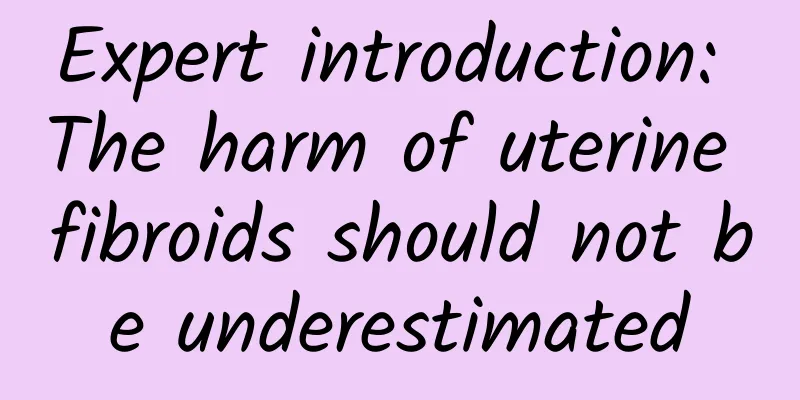How to treat morbid obesity? Gastric bypass surgery becomes a new trend to help diabetic patients stabilize blood sugar

|
People who are overweight should be careful as it may not only cause three highs, such as diabetes, high blood pressure, and high blood lipids, but may even cause sleep apnea. For patients with "morbid obesity", weight loss through diet control and exercise is not effective. Currently, weight loss surgery is the most effective solution to morbid obesity. According to the latest 110-year health promotion statistics yearbook of the National Health Administration, more than half of adults in Taiwan are overweight, and the overweight and obesity rate for those over 18 is as high as 50.3%, of which the rate for men is as high as 58.4%. Weight control has become a health issue that the people of Taiwan must pay attention to. According to the standards of WHO (World Health Organization) and NIH (National Institutes of Health), when BMI is greater than or equal to 35 and there are complications caused by obesity such as diabetes, hypertension, hyperlipidemia or sleep apnea, or BMI exceeds 40 and has become harmful to health, it is called "morbid obesity". For those who have not achieved good results in weight loss through diet control and exercise, weight loss surgery is currently the most effective way to treat morbid obesity, but whether it is suitable for execution still needs to be evaluated by a professional physician. Dr. Wu Dongyan from the General Surgery Department of Enzhugong Hospital shared a case of a 50-year-old middle-aged woman who underwent a surgical weight loss surgery at our hospital. She was 155 cm tall and weighed 102 kg. Her BMI index was as high as 42.4. Due to obesity, she had apnea problems, which seriously affected her sleep. She was unable to lose weight effectively through diet control and exercise. After evaluation by the doctor and communication with the patient, she underwent a sleeve gastrectomy surgery with lower risks. She lost about 10 kg two months after the surgery. Her weight decreased steadily during the surgery, and her original snoring and apnea problems gradually disappeared. Types and indications of bariatric surgeryDr. Wu Dongyan said that surgical weight loss surgery mainly has two goals: "reducing gastric capacity" and "reducing absorption". Among them, sleeve gastrectomy is currently the most commonly used weight loss surgery in Taiwan. It reduces gastric capacity by removing part of the stomach. Generally speaking, the weight loss rate is about 25~35%. It has a good weight loss effect and can also help control diabetes. However, the disadvantage is that the probability of gastroesophageal reflux is higher. The other two main weight loss surgeries are gastric bypass surgery and gastric bypass surgery. Gastric bypass surgery is more complicated. It not only reduces the stomach capacity, but also bypasses part of the small intestine to reduce nutrient absorption. However, because it changes the original continuous structure of the stomach and small intestine, it makes it difficult to perform gastroscopy after surgery and the risk is higher. Generally speaking, the weight loss rate is about 30%~40%. It also has a good weight loss effect and can effectively control diabetes. The gastric bypass surgery combines the advantages of both. After sleeve gastrectomy, small intestine bypass is added to achieve better weight loss effect and chronic disease control. Especially for diabetic patients, gastric bypass surgery can more effectively control blood sugar. Generally speaking, the weight loss is about 30~40%, and the chance of gastroesophageal reflux is low. It is the new trend in weight loss surgery. However, the disadvantage of this surgery is that there may be a risk of malabsorption of vitamins and minerals after surgery, and the patient may need to supplement these nutrients for the rest of his life. In addition, Dr. Wu Dongyan pointed out, "Because of the high incidence of gastric cancer in Taiwan, gastric cancer diagnosis requires gastroscopy. Gastric bypass surgery has destroyed the continuous structure from the stomach to the small intestine, making it impossible to perform gastroscopy. Sleeve gastrectomy and gastric bypass surgery are not affected, and are more suitable surgical methods for gastric cancer diagnosis and gastroscopy treatment." Risks, preoperative preparation and postoperative management of weight loss surgeryAll bariatric surgeries have the risk of anastomotic leakage. Gastric bypass surgery involves more anastomotic sites during the operation, which increases the possibility of anastomotic leakage and the risk of postoperative bleeding and intestinal obstruction is also higher. Sleeve gastrectomy simply reduces the volume of the stomach, the surgery is concentrated in the upper abdomen, and the chance of postoperative intestinal obstruction is lower. Gastric bypass surgery also involves more anastomosis sites and has higher risks than sleeve gastrectomy, but it is better than sleeve gastrectomy in controlling chronic diseases such as diabetes. Before undergoing weight loss surgery, the patient's metabolic status must be assessed by an internal medicine doctor, such as blood sugar control, and the patient's physical and mental condition must be assessed by a psychosomatic doctor. A CT scan must be performed to see if there is a diaphragmatic hernia problem, and a gastroscopy must be performed to see if the stomach is infected with Helicobacter pylori. Even if there is stomach cancer, surgery is not suitable. Dr. Wu Dongyan specifically pointed out, "If there is Helicobacter pylori in the stomach, it will cause subsequent ulcer problems, and it must be treated before surgery can be performed." Postoperative management is crucial to the success of weight loss surgery. Regardless of the surgery, patients will need to adhere to a strict diet and exercise regimen to prevent weight regain. Additionally, long-term vitamin and mineral supplementation is especially important for patients who have undergone gastric bypass or gastric bypass surgery, as the surgery can affect the body's absorption of these nutrients. Dr. Wu Dongyan said that regardless of the type of surgery, patients need to strictly adhere to diet control and regular exercise to prevent weight rebound. (Photo provided by Enzhugong Hospital) Eligible for health insurance coverage of bariatric surgeryFor people who need weight loss surgery, health insurance provides relevant subsidies, but they must meet the following conditions: (1) BMI ≥ 37.5, or BMI ≥ 32.5 with high-risk complications, such as type 2 diabetes whose glycosylated hemoglobin remains 7.5% after medical treatment, hypertension, apnea syndrome, etc. (2) Aged between 20 and 65 years old. (3) The patient must have been in a weight loss clinic for at least six months (or have relevant supporting evidence from the clinic for at least six months) and have maintained diet control through exercise for at least six months. (4) No endocrine system abnormalities or other diseases that may cause obesity. (5) No drug abuse or mental illness. (6) No major organ dysfunction and able to accept the risks of surgery. (7) The patient is mentally healthy and has been confirmed to be normal by a psychiatric specialist. If the above conditions are met, the patient only needs to bear part of the cost of laparoscopic consumables, ward difference and health insurance burden, ranging from tens of thousands to hundreds of thousands of yuan. If you need weight loss surgery, you can consult the general surgery department of the hospital if necessary. |
Recommend
What is the difference between pelvic effusion and bacterial vaginosis?
What is the difference between pelvic effusion an...
The 4 functions of the uterus for women
The uterus is located in the pelvic cavity, betwe...
What are the symptoms and hazards of cervical hypertrophy
Cervical hypertrophy is a common gynecological di...
What are the key points to prevent allergic vaginitis?
The emergence of allergic vaginitis has brought a...
Etiological classification of patients with hyperprolactinemia
In daily life, we need to pay attention to hyperp...
Experts help you understand acute cervicitis
Most patients with acute cervicitis will suffer f...
Staying up late for a week and gaining 2 kg, I’m so disgusted! 2 secrets for night owls to eat late night snacks without gaining weight
The FIFA World Cup in Russia has begun. Muscular ...
Do you know the consequences of improper abortion?
Do you know the harm of improper abortion? Some s...
Actively preventing ectopic pregnancy is the most important
There is no obvious difference between ectopic pr...
Measures to prevent uterine fibroids in women
Daily life conditioning is very important for pre...
Can endometritis and pelvic inflammatory disease be cured?
Endometritis and pelvic inflammatory disease can ...
Which method is better for treating white lesions of the vulva?
Vulvar leukoplakia is already very familiar to mo...
Why does cervical precancerous lesions occur?
The cause of cervical precancerous lesions is sti...
Young girls can also suffer from vaginitis! 3 things are not done well!
Many people think that vaginitis is a disease tha...
What are the dietary taboos for people with bacterial vaginosis?
The vagina is the most sensitive part of a woman,...









